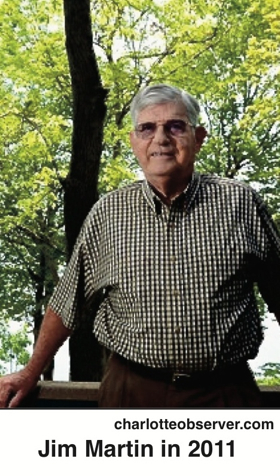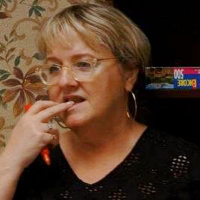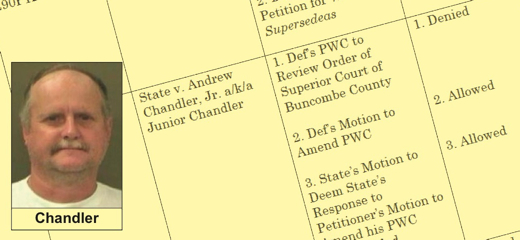Rascals case in brief
In the beginning, in 1989, more than 90 children at the Little Rascals Day Care Center in Edenton, North Carolina, accused a total of 20 adults with 429 instances of sexual abuse over a three-year period. It may have all begun with one parent’s complaint about punishment given her child.
Among the alleged perpetrators: the sheriff and mayor. But prosecutors would charge only Robin Byrum, Darlene Harris, Elizabeth “Betsy” Kelly, Robert “Bob” Kelly, Willard Scott Privott, Shelley Stone and Dawn Wilson – the Edenton 7.
Along with sodomy and beatings, allegations included a baby killed with a handgun, a child being hung upside down from a tree and being set on fire and countless other fantastic incidents involving spaceships, hot air balloons, pirate ships and trained sharks.
By the time prosecutors dropped the last charges in 1997, Little Rascals had become North Carolina’s longest and most costly criminal trial. Prosecutors kept defendants jailed in hopes at least one would turn against their supposed co-conspirators. Remarkably, none did. Another shameful record: Five defendants had to wait longer to face their accusers in court than anyone else in North Carolina history.
Between 1991 and 1997, Ofra Bikel produced three extraordinary episodes on the Little Rascals case for the PBS series “Frontline.” Although “Innocence Lost” did not deter prosecutors, it exposed their tactics and fostered nationwide skepticism and dismay.
With each passing year, the absurdity of the Little Rascals charges has become more obvious. But no admission of error has ever come from prosecutors, police, interviewers or parents. This site is devoted to the issues raised by this case.
On Facebook
Click for earlier Facebook posts archived on this site
Click to go to
Today’s random selection from the Little Rascals Day Care archives….
Click for earlier Facebook posts archived on this site
Click to go to
Today’s random selection from the Little Rascals Day Care archives….
‘I was aware of the possibility of childish fantasy….’
 July 11, 2014
July 11, 2014
“…. As you might imagine, I had not had reason to think about the Little Rascals case until your email arrived. Yes, I was very interested in the case at the time, but had no role or authority to intervene. (See governor’s 1991 response to letter writers.) The arrests and charges were highly publicized, as were the proceedings of the trial, upon which the two accused were convicted. So, like most citizens, I felt a compulsion to follow the case, at least insofar as the news coverage.
“My recollection is that both the horrible accusations and the contrary indications of coached and imaginative testimony of the children were featured in the coverage…. Being very familiar with Arthur Miller’s brilliant drama, ‘The Crucible,’ I was aware of the possibility of childish fantasy passing as falsely condemning testimony. From a distance, most readers probably shared the concern, ‘What if it were true?’
“I do not recall whether the defense attorneys contacted my office in an appeal for clemency in 1991-1992. Had they done so, they would have been advised that my practice was to let the appellate courts complete their judicial review before considering clemency. This was complete in 1995 when the NC Supreme Court declined to review the finding by the Court of Appeals of trial error, at which time there would be no cause for Governor Hunt to intervene. I have great respect for the judgment and integrity of then Chief Justice Burleigh Mitchell, and that would settle the legal principles of the matter for me.
“I can only wonder what conclusion I might have reached had the appeal for clemency been properly before me. My approach in such cases was to meet separately with advocates on both sides, without restricting the nature or style of what they had to say. I would make my decision based on corroborated evidence and the trial record, without following its standards for disqualifying some evidence. I gave attention to two main standards: (a) whether the punishment was suited to the nature of the crime, and (b) whether there was doubt as to the guilt of the person convicted….
“I believe your cause is to persuade the Governor to issue a Pardon of Innocence for Bob Kelly and Dawn Wilson. It may be difficult to produce exculpatory evidence several decades after the events. You did not say whether Mr. Kelly and/or Ms. Wilson wish to return to that gauntlet, considering the degree to which they have restored their lives. If they do, it would my hope that Governor McCrory and his counsel would weigh the two guidelines cited above, although no Governor is bound in clemency matters by any precedent of his predecessors. While it can be difficult to prove a negative, it would help your cause if there were former accusers now in their thirties who have recanted the accusations of their childhood. Otherwise, the appellate finding of procedural error alone might not be sufficient.”
– From a letter from former Gov. Jim Martin responding to my question about his recollections of the Little Rascals Day Care case
As welcome as a gubernatorial pardon would be, my hopes for the Edenton Seven are more modest: a “statement of innocence” from the governor or attorney general similar to that given the defendants in the Duke lacrosse case.
If only the Little Rascals prosecutors had been as familiar with “The Crucible” as was the governor….
Exoneree sees through prosecutors’ excuses: ‘I call BS’

facebook.com
Martha Waggoner
June 30, 2016
“North Carolina’s district attorneys say a proposed rule that would require them to turn over evidence of innocence after a person is convicted is….”
Anyone familiar with the worst practices of DAs won’t be surprised at the rest of Martha Waggoner’s sentence:
“….unnecessary because prosecutors already believe it should be turned over at any point, including post-conviction.”
Chris Mumma of the N.C. Center on Actual Innocence, herself punished for exposing wrongful prosecutions, wondered why DAs would object to putting their high standard in writing: “If all the rule does is raise confidence in the process, then it’s beneficial.”
A more visceral response appeared on reporter Waggoner’s Facebook page – from exoneree Dwayne Dail:
“If it is unnecessary and they already believe that there is a rule that holds them to that standard, then why haven’t they been doing it?! Why have they argued that they had no obligation to do this? Why wasn’t I told that there was an alternative suspect in MY case, who just so happened to be the true perp? Why did I only find out after years of investigation during my civil suits, after my exoneration, that the actual perp’s name was in their files but was never investigated? I call BS.”
Dail was convicted of raping a 12-year-old Goldsboro girl in 1987. DNA evidence cleared him in 2007.
![]()
Day-care prosecutors ‘become like a torturer’
Aug. 17, 2012
“I’ve wondered how the prosecutors (in ritual-abuse day-care cases) could live with themselves.
“Says Debbie Nathan (coauthor of “Satan’s Silence: Ritual Abuse and the Making of a Modern American Witch Hunt”): ‘There was a time – and it lasted eight or nine years – when there was an entire body of expert opinion that these things could happen.’ It was a time, she says, when pseudoscience had raced ahead of science, when best-selling books that had yet to be contradicted asserted that the inability to remember a trauma was the strongest proof of it, when doctors trying to be helpful established as a baseline a model virginal hymen so perfectly smooth and shaped that it allowed any actual hymen to be construed as traumatized.
“ ‘Our culture is still really atavistic,’ says Nathan, ‘but there’s an overlay of science on it. Mix the totally primeval stuff with science and you’ve got this mix that can’t be beat.’ Prosecutors, she says, ‘are just as naive as anyone else, but they also know how to sway people. They have all the techniques down pat. “Suffer the little children.” “Innocence defiled.” “Worse than murder.” ‘
“But why, as science and truth become clearer, is it so hard for so many prosecutors to recant?… ‘Maybe it’s because the whole process of constructing one of these innocent people as a really demonically evil sexual pervert who sadistically violates lots of kids – the whole process of constructing this character on a real person is torture. You have to be very invasive. It’s a very sadistic enterprise. You become like a torturer.’ ”
– From “Why Can’t They Admit They Were Wrong?” by John Conroy
in the Chicago Reader (Aug. 1, 2003)
N.C. justices to Junior Chandler: Drop dead
 Oct. 5, 2012
Oct. 5, 2012
Because today’s North Carolina Supreme Court decision on Junior Chandler’s appeal comprised three separate parts, I didn’t fully comprehend it.
“Is this good news or bad?” I emailed Mark Montgomery, Junior’s appellate lawyer.
“The worst,” he replied. “We’re out of court.”
Yes, this is the worst – the absolute, inexcusable, shameful worst.
The justices have denied Junior Chandler, probably the last still-imprisoned victim of the multiple-offender, multiple-victim ritual-abuse day-care panic, his final chance for a new trial. After 25 years behind bars – more than all the Little Rascals defendants combined! – he faces only more of the same.
If I were a lawyer, maybe I could understand how the North Carolina Supreme Court arrived at its decision.
How it was unmoved by Junior’s feeble representation early on.
How it was uninterested in the epochal progress made in limiting expert testimony.
How it was all too eager to find petty justifications for validating a prosecution rotten at the core.
But probably not.











0 CommentsComment on Facebook